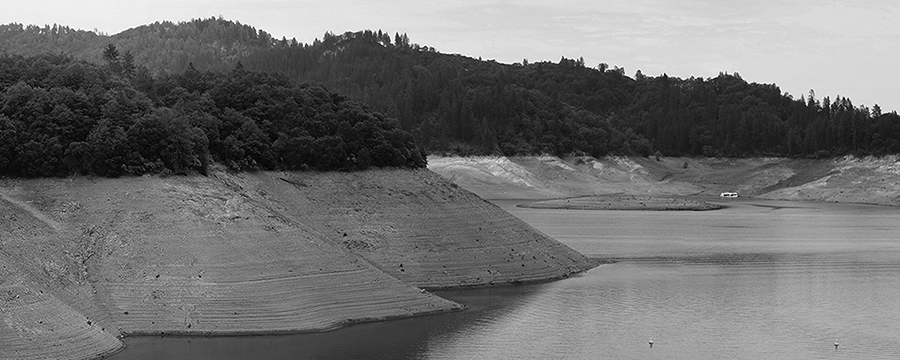Ending the drought one drip at a time
The California drought is so severe that many beautiful lakes like Shasta Lake are drying up.
Despite the Urban community’s pride as environmentalists, few students have made significant changes in the midst of California’s worst drought in reported history.
Diana Silvestri (’15), a member of Green Team, noticed a lack of knowledge underneath our big talk. “We can throw big words like global warming and climate change around, and act like we know a lot about them,” said Silvestri, “but if we actually break them down, I don’t think that we’re very educated about them.”
In a survey of 100 Urban students and faculty, almost 96 percent reported that they do care about California’s environment, with 4 percent of responses reporting indifference to the subject. Still, 23 percent of responders said they neither changed any of their behavior because of the drought, nor did they take any conservation measures before the drought.
According to California Governor Jerry Brown, who declared a drought state of emergency in January, the state is experiencing “one of the most severe droughts on record.”
“I think generally we are a really progressive school when it comes to environmental causes,” added Sophie Weir (’15), also a member of Green Team, “but at the same time, there’s always so much room for improvement.”
The official California government drought website publishes daily quick water-saving tips, like “[Wash] dark clothes in cold water, “Reuse your towels” and “Scrape dishes rather than rinsing them before washing.” Silvestri suggests implementing drought-friendly landscaping and letting lawns go brown as a more impactful changes. “There are some people who are oblivious to really easy things they could be doing to make a difference,” says Weir.
The drought survey reported that 60 percent of students and faculty did change some of their habits because of the drought. Many responses cited taking shorter showers as their new water-saving measure. “Individual conservation measures are important, but they alone are insufficient; we need government regulation,” says Sarah Clowes, science teacher.
As individuals, what matters most is “(being) as effective as you can,” said Weir. “You want to make changes that are sustainable and effective, but often if it hinders someone’s daily life, even for a second, people have a huge response. It’s the line (between) keeping people happy and also making a difference, which is really hard to find sometimes.”


